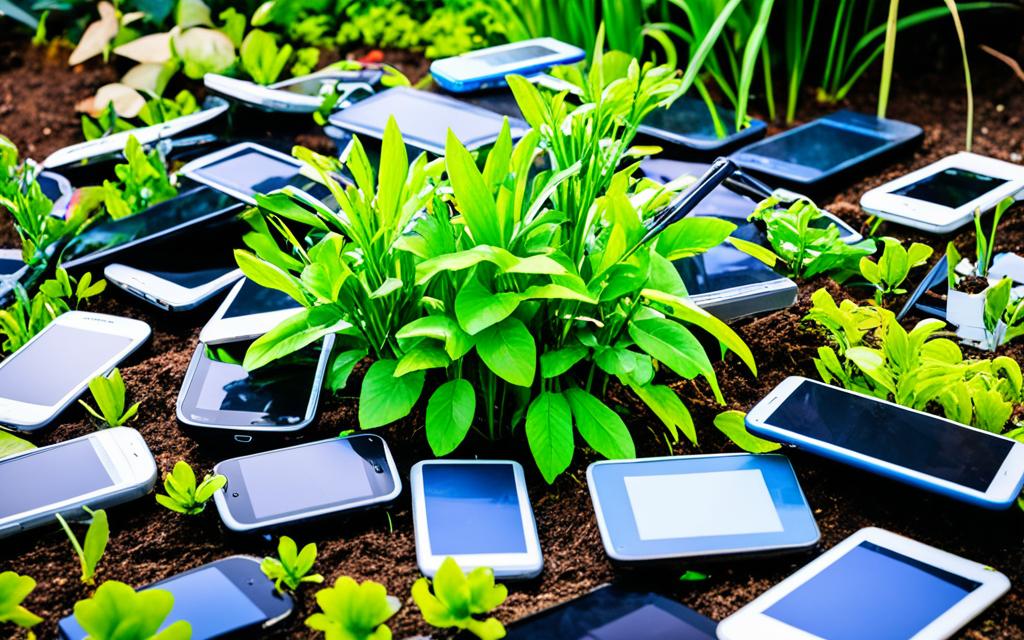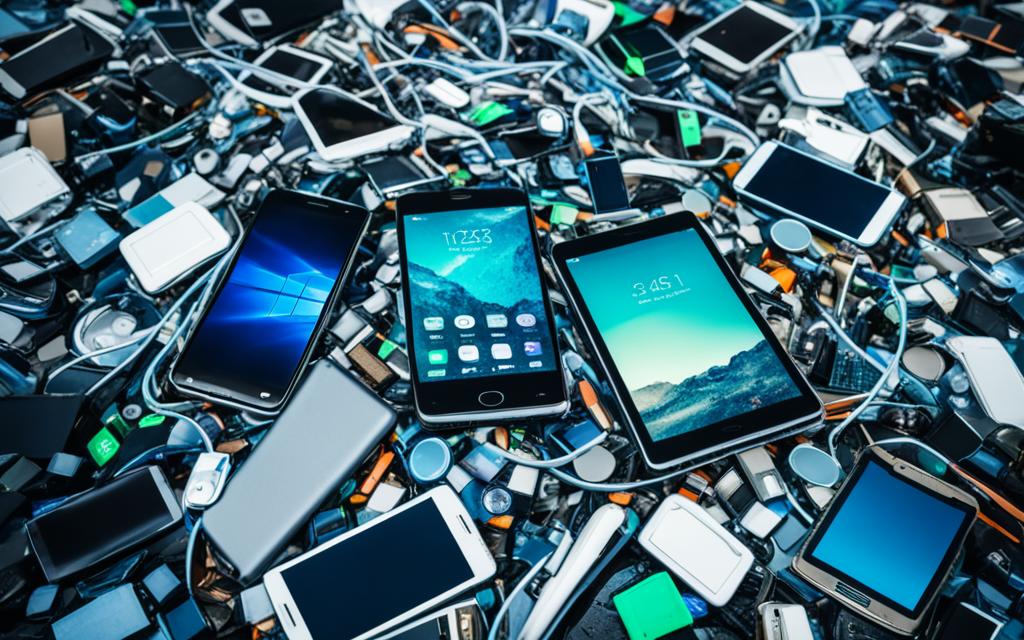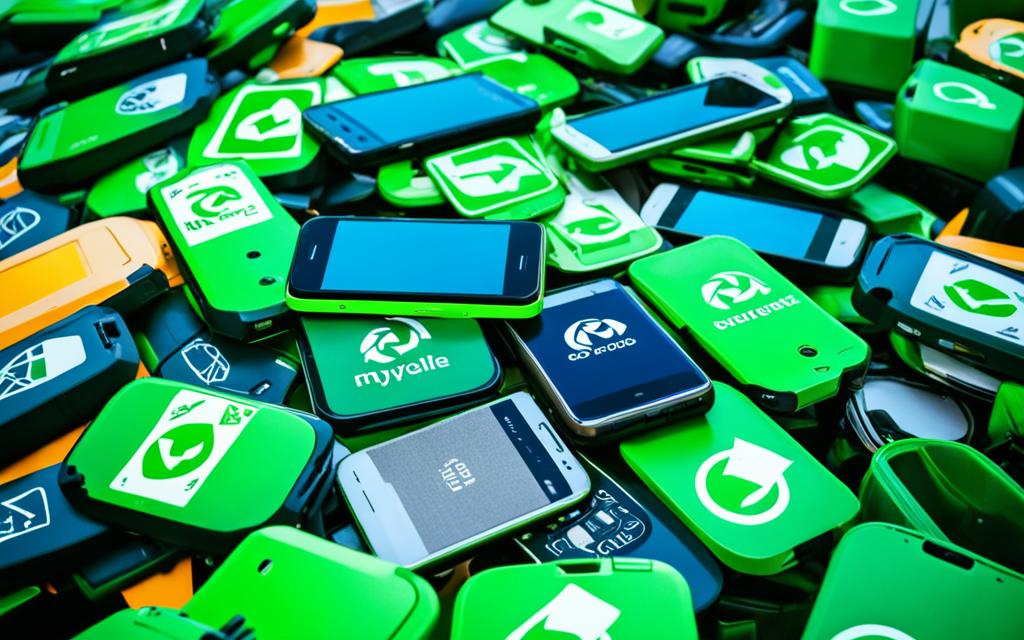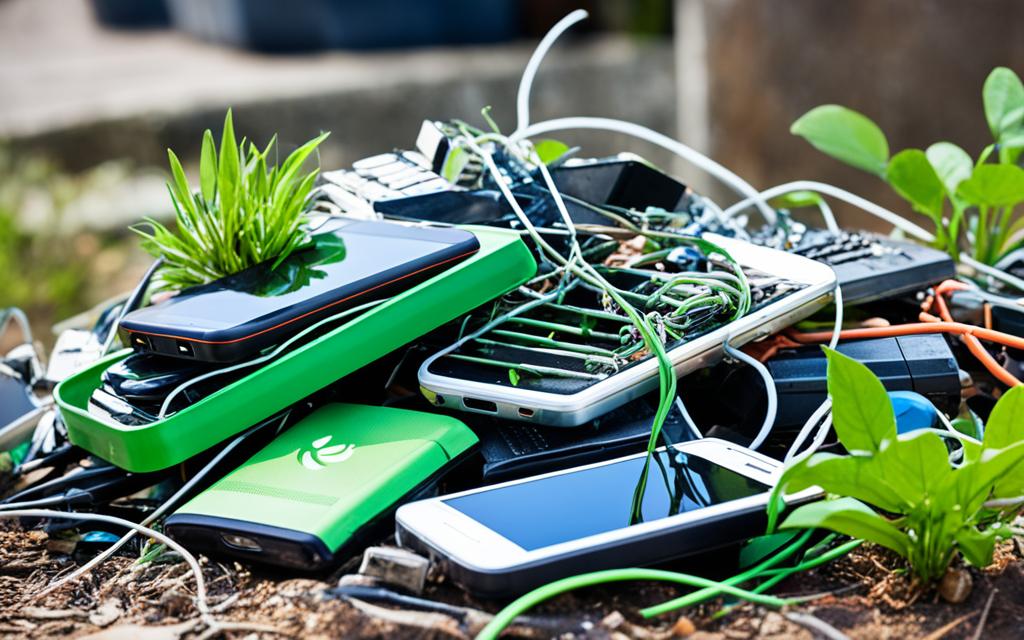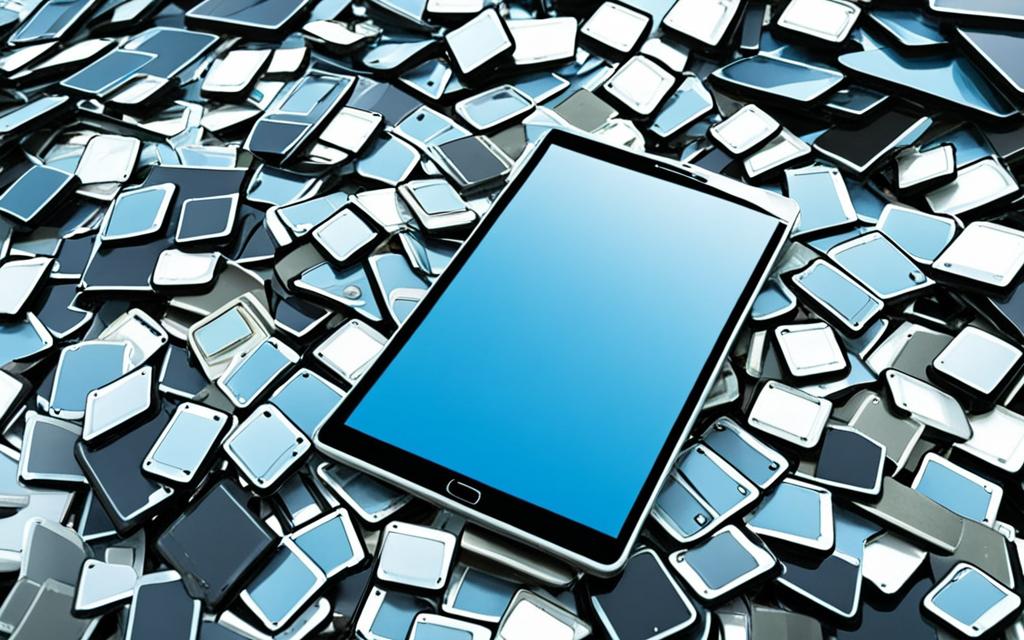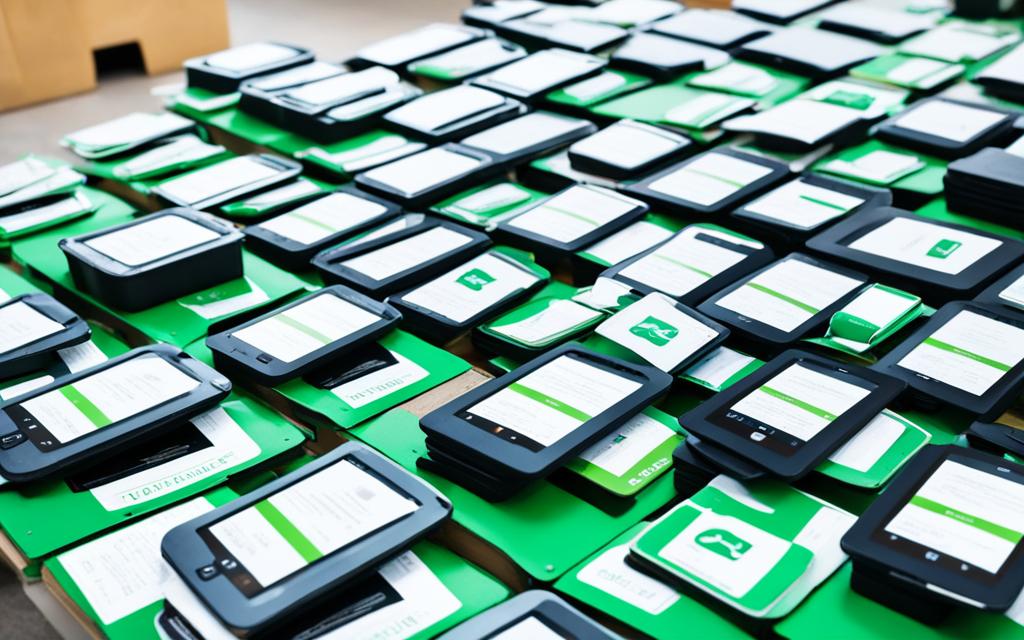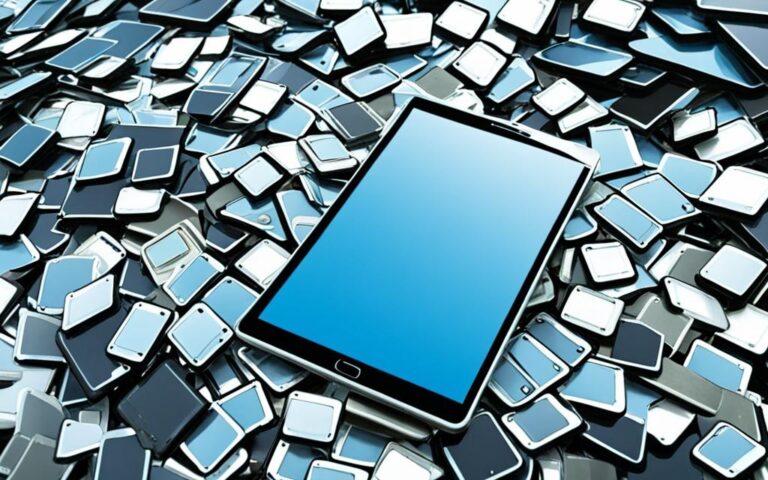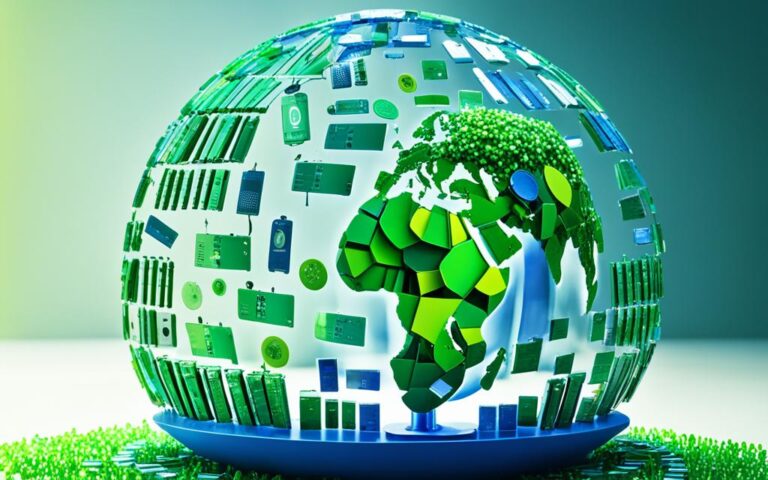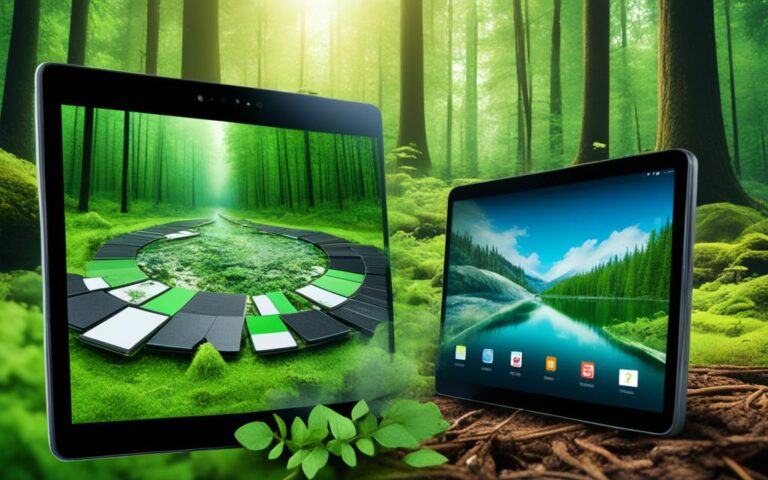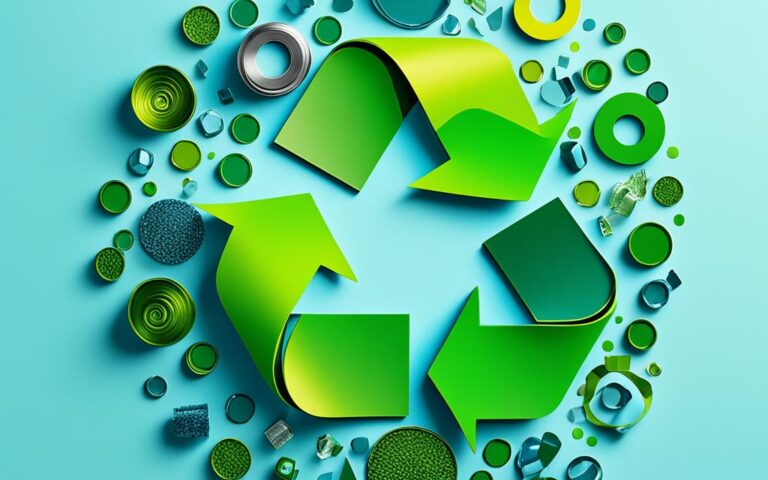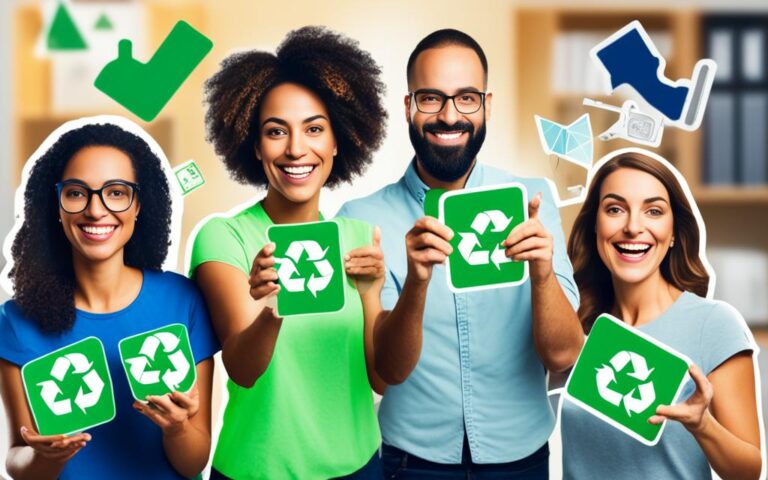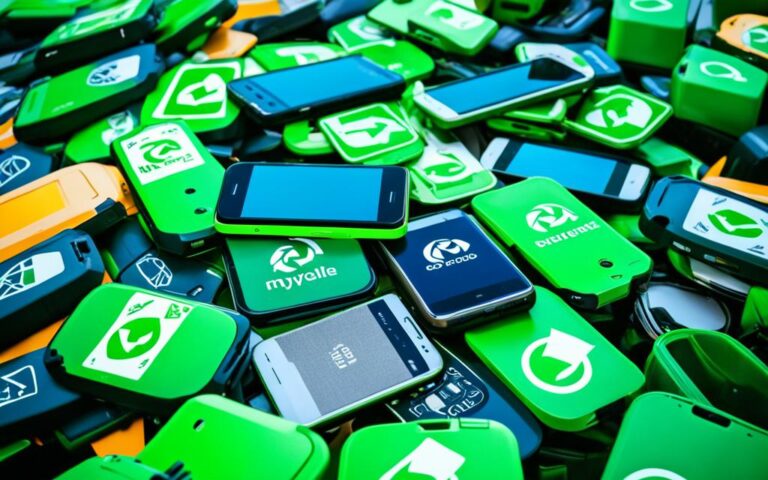The Impact of Phone and Tablet Recycling on Resource Conservation
In today’s society, the over-reliance on mobile phones and tablets has led to a significant amount of electronic waste. Approximately 100-120 million phones are discarded each year, causing environmental pollution and resource depletion. However, recycling these devices can help conserve resources, reduce energy consumption, curb mining processes, and prevent health problems associated with hazardous materials. By recycling cell phones and tablets, up to 80% of their materials can be reused, making a substantial difference in resource conservation.
The Environmental Impact of Discarded Cell Phones
When cell phones are carelessly discarded, they contribute to electronic waste, which is a growing environmental problem. In fact, approximately 100-120 million cell phones are discarded each year, adding to the mounting e-waste crisis. These discarded cell phones contain hazardous materials that can have a detrimental impact on the environment.
Cell phones often contain toxic metals such as lead, mercury, arsenic, cadmium, and brominated flame retardants. These hazardous substances, if not properly disposed of, can seep into the air, groundwater, and soil, causing widespread pollution. The improper disposal of millions of cell phones annually contributes to the accumulation of these toxic materials in landfills and the environment, posing a serious threat to ecosystems and human health.
Recycling cell phones is a crucial step in preventing further environmental damage. It allows for the safe extraction and reuse of the valuable materials present in these devices, while also minimizing the release of hazardous substances. By recycling cell phones, we can significantly reduce pollution and protect the environment from the harmful effects of electronic waste.
The Environmental Impact of Discarded Cell Phones: A Visual Representation
| Environmental Impact | Consequences |
|---|---|
| Pollution of air, groundwater, and soil | Contamination of ecosystems and potential harm to human health. |
| Accumulation of toxic materials in landfills | Long-term environmental damage and the release of harmful substances into the environment. |
| Threat to ecosystems | Disruption of biodiversity and ecological balance. |
As the table illustrates, the environmental impact of discarded cell phones is far-reaching and poses significant challenges to the health and sustainability of our planet. By taking responsibility for properly recycling our old cell phones, we can mitigate these consequences and make a positive impact on the environment.
“The impact of discarded cell phones on the environment cannot be understated. By recycling these devices, we have the power to reduce pollution, prevent harms to ecosystems, and protect the planet for future generations.” – Environmental Expert
The Energy-Saving Benefits of Phone and Tablet Recycling
In today’s world, where the use of mobile phones and tablets is ubiquitous, the issue of electronic waste has become increasingly significant. Discarding these devices not only leads to environmental pollution but also results in the depletion of valuable resources. However, there is a solution that can help address these concerns and bring about positive change – phone and tablet recycling.
Phone and tablet recycling not only promotes resource conservation but also offers a range of energy-saving benefits. By participating in recycling programs, individuals can make a meaningful impact in reducing energy consumption and contributing to a more sustainable future.
“Recycling one cell phone can save enough energy to charge a laptop for 44 hours.”
According to estimates, the energy saved from recycling a single cell phone is equivalent to the amount required to charge a laptop for 44 hours. This demonstrates the immense potential of phone and tablet recycling in conserving energy. With millions of devices being disposed of each year, recycling them could generate enough energy to power thousands of homes annually. By embracing phone and tablet recycling, individuals can actively contribute to reducing energy usage and promoting sustainable practices.
Furthermore, by recycling these electronic devices, valuable materials can be extracted and reused, reducing the need for resource-intensive mining processes. This not only conserves natural resources but also minimizes the environmental impact associated with mining activities.
Moreover, phone and tablet recycling programs often involve the proper disposal of hazardous materials found in these devices. This prevents the release of harmful substances into the environment, safeguarding human health and the ecosystem as a whole. By recycling cell phones and tablets, we can minimize the risks associated with toxic materials such as lead, mercury, arsenic, cadmium, and flame retardants.
In conclusion, phone and tablet recycling offer significant energy-saving benefits, contributing to both resource conservation and environmental sustainability. By participating in recycling programs, individuals can make a tangible difference and actively promote a more sustainable future. Let us all join hands in embracing phone and tablet recycling as a responsible and eco-conscious choice.
The Role of Mining Reduction in Phone and Tablet Recycling
When it comes to the production of cell phones and tablets, valuable minerals like copper, silver, gold, and palladium are utilized. However, these minerals are becoming scarcer and are often obtained through environmentally damaging mining processes. The extraction of these minerals not only contributes to the depletion of precious resources but also leads to significant environmental degradation.
Fortunately, phone and tablet recycling programs offer a solution to this problem. By recycling one million cell phones, we can recover thousands of pounds of these valuable minerals, reducing the need for further mining. This reduction in mining activities has a significant positive impact on resource conservation and the environment.
Phone and tablet recycling programs play a crucial role in minimizing the environmental impact of resource extraction. By recycling these devices, we can effectively reduce the demand for new mining, conserving natural resources, and mitigating the harmful effects of mining activities on ecosystems.
By actively participating in phone and tablet recycling initiatives, individuals can contribute to a sustainable future by supporting mining reduction efforts. Through these collective actions, we can protect the planet, conserve valuable resources, and ensure a brighter future for generations to come.
| Benefits of Mining Reduction in Phone and Tablet Recycling | Implications |
|---|---|
| Conservation of natural resources | Minimizes the need for further mining activities, preventing resource depletion |
| Reduction in environmental degradation | Diminishes the negative impact of mining operations on ecosystems |
| Contribution to sustainable practices | Supports the principles of circular economy and promotes long-term resource sustainability |
| Minimizing carbon footprint | Reduces greenhouse gas emissions associated with mining and refining processes |
Health Benefits of Recycling Cell Phones and Tablets
The toxic materials present in cell phones and tablets can pose serious health risks to both animals and humans. Lead, for example, is a known carcinogen and can affect cognitive functions. Mercury, another hazardous material, can be fatal to animals and cause sensory impairments and memory loss. By recycling these devices, the release of toxic materials into the environment is minimized, reducing potential health hazards and promoting a healthier ecosystem.
Recycling cell phones and tablets not only benefits the environment but also has a direct impact on our well-being. By preventing the improper disposal of these electronic devices, we can safeguard ourselves and future generations from the harmful effects of toxic substances. Take a look at the table below to see the health benefits of recycling cell phones and tablets:
| Hazardous Material | Health Risk | Impact of Recycling |
|---|---|---|
| Lead | Known carcinogen Can affect cognitive functions |
Minimizes release Reduces potential health hazards |
| Mercury | Fatal to animals Causes sensory impairments and memory loss |
Prevents environmental contamination Promotes a healthier ecosystem |
Recycling cell phones and tablets plays a crucial role in safeguarding not just the environment but also our own health. By avoiding the careless disposal of these devices, we can minimize the risks associated with toxic materials like lead and mercury.
Recycling our electronic devices is not just about protecting the planet; it’s about protecting ourselves and the well-being of future generations. Let’s make a conscious effort to recycle our cell phones and tablets and create a healthier environment for everyone.
Examples of Successful Phone and Tablet Recycling Programs
Successful recycling programs have been implemented by several companies and organizations, showcasing their commitment to phone and tablet recycling. These initiatives play a crucial role in promoting resource conservation and sustainability. Let’s explore some notable examples:
Apple Renew Program
Apple introduced the Apple Renew program, aimed at encouraging customers to return their old devices for recycling. Through this program, Apple ensures that their products are responsibly disposed of and recycled. By participating in the Apple Renew program, customers contribute to the reduction of electronic waste and the conservation of valuable resources.
Samsung Galaxy Upcycling Program
Samsung’s “Galaxy Upcycling” program takes a creative approach to phone recycling. Instead of discarding old Galaxy smartphones, Samsung repurposes them for various applications. This innovative program promotes sustainability by extending the lifecycle of devices and reducing electronic waste. By enabling users to transform their old phones into useful tools, Samsung encourages responsible consumption and resource conservation.
Fairphone’s Modular Approach
Fairphone has adopted a unique modular approach to phone design, focusing on repairability and upgradability. Their smartphones are designed with modular components that can be easily replaced or upgraded, reducing the need for new devices. By prioritizing longevity and repairability, Fairphone promotes sustainable consumption and reduces electronic waste. Their commitment to environmentally friendly practices sets an example for the industry.
EPEAT and WEEE Directive
Initiatives like the Electronic Product Environmental Assessment Tool (EPEAT) and the Waste Electrical and Electronic Equipment (WEEE) Directive aim to promote responsible recycling practices in the electronics industry. EPEAT provides a comprehensive system for assessing the environmental impact of electronic products, while the WEEE Directive establishes regulations for the disposal and recycling of electronic waste. These initiatives work towards creating a sustainable and circular economy.
| Program | Description |
|---|---|
| Apple Renew Program | Allows customers to return old devices for recycling. |
| Samsung Galaxy Upcycling Program | Repurposes older Galaxy smartphones for various applications. |
| Fairphone’s Modular Approach | Designs smartphones that are easy to repair and upgrade. |
| EPEAT and WEEE Directive | Promote responsible recycling practices in the electronics industry. |
These examples highlight the effectiveness of recycling programs in promoting resource conservation and sustainability. By supporting these initiatives and adopting responsible recycling practices, individuals and companies can make a significant difference in reducing electronic waste and preserving our planet’s resources.
The Role of NGOs and Governments in Phone and Tablet Recycling
Non-governmental organizations (NGOs) and governments play a vital role in promoting the responsible recycling of phones and tablets. These devices have become an integral part of our lives, but the rapid pace of technological advancement leads to a significant amount of electronic waste. NGOs such as the Basel Action Network (BAN) are at the forefront of combating e-waste and advocating for sustainable recycling practices.
NGOs like BAN work tirelessly to raise awareness about the environmental and social impact of electronic waste. They educate the public on the importance of recycling and provide resources for responsible disposal. By collaborating with NGOs, individuals and businesses can gain access to valuable information and support to ensure their devices are properly recycled.
“E-waste is a global issue that requires collective action. NGOs like BAN play a critical role in raising awareness and driving positive change.”
In addition to NGOs, governments also play a crucial role in phone and tablet recycling. One notable example is the European Union (EU) which has implemented strict directives and regulations to ensure the responsible disposal and recycling of electronic devices. By enacting legislation and providing guidance on recycling procedures, governments create a conducive environment for phone and tablet recycling.
Through collaboration between NGOs and governments, a comprehensive framework is established to promote recycling initiatives. This includes establishing collection points, implementing recycling programs, and enforcing regulations to combat illegal dumping of e-waste. By working together, NGOs and governments can instill a culture of responsible recycling and contribute to the principles of the circular economy.
Key Points:
- NGOs like the Basel Action Network (BAN) actively combat e-waste and promote responsible recycling practices.
- Governments, such as the European Union, have implemented directives and regulations to ensure the responsible disposal and recycling of electronic devices.
- Collaboration between NGOs and governments creates a conducive environment for phone and tablet recycling.
- NGOs and governments work together to establish collection points, implement recycling programs, and enforce regulations to combat illegal dumping of e-waste.
- The collective effort of NGOs and governments contributes to a sustainable circular economy.
Conclusion
Phone and tablet recycling play a pivotal role in conserving resources and promoting environmental sustainability. With the alarming number of devices being discarded each year, it is crucial to prioritize recycling as a means of reducing electronic waste and preserving valuable resources. The benefits of recycling these devices are multifaceted, encompassing environmental preservation, energy conservation, reduction in mining activities, and protection of human health.
By recycling our old phones and tablets, we can significantly minimize the adverse environmental impact of electronic waste. Proper recycling allows for the safe extraction and reuse of hazardous materials, preventing them from contaminating the air, water, and soil. Moreover, recycling these devices helps conserve energy, with every recycled cell phone contributing to substantial energy savings. The extraction of valuable minerals from recycled phones and tablets also helps reduce the need for environmentally damaging mining processes.
Furthermore, recycling these devices contributes to our overall well-being by preventing health risks associated with toxic materials. Lead, mercury, and other hazardous substances found in cell phones and tablets have detrimental effects on human health. By participating in phone and tablet recycling programs, we minimize the release of these harmful substances into the environment, safeguarding both our health and the health of ecosystems.
Examples of successful recycling programs implemented by companies like Apple and Samsung, as well as the involvement of NGOs and governments, demonstrate the collective effort required to achieve a sustainable mobile and tablet industry. By embracing the principles of the circular economy, we can contribute to a healthier planet for present and future generations. Let us all take part in the movement towards phone and tablet recycling, making a positive impact on our environment and preserving valuable resources for the benefit of all.
FAQ
What is the impact of phone and tablet recycling on resource conservation?
Phone and tablet recycling significantly helps conserve resources by reusing up to 80% of the materials in these devices, reducing the need for resource extraction.
What is the environmental impact of discarded cell phones?
Discarded cell phones contribute to electronic waste, releasing hazardous materials such as lead, mercury, and flame retardants into the environment, posing a serious threat to air, groundwater, and soil quality.
What are the energy-saving benefits of phone and tablet recycling?
Phone and tablet recycling can save significant energy, with one recycled cell phone alone having the potential to power a laptop for 44 hours. Recycling millions of devices could generate enough energy to power thousands of homes annually.
How does phone and tablet recycling contribute to mining reduction?
By recycling one million cell phones, thousands of pounds of valuable minerals like copper, silver, gold, and palladium can be recovered, reducing the need for environmentally damaging mining practices.
What are the health benefits of recycling cell phones and tablets?
Recycling cell phones and tablets minimizes the release of toxic materials into the environment, reducing health risks associated with hazardous substances like lead and mercury, which can have detrimental effects on both humans and animals.
Can you provide examples of successful phone and tablet recycling programs?
Some examples of successful phone and tablet recycling programs are Apple’s Apple Renew, Samsung’s “Galaxy Upcycling,” Fairphone’s modular approach, and initiatives like EPEAT and the Waste Electrical and Electronic Equipment (WEEE) Directive.
What is the role of NGOs and governments in phone and tablet recycling?
NGOs like the Basel Action Network (BAN) work to combat e-waste and promote responsible recycling practices, while governments implement regulations and directives to ensure the responsible disposal and recycling of electronic devices for a sustainable circular economy.

